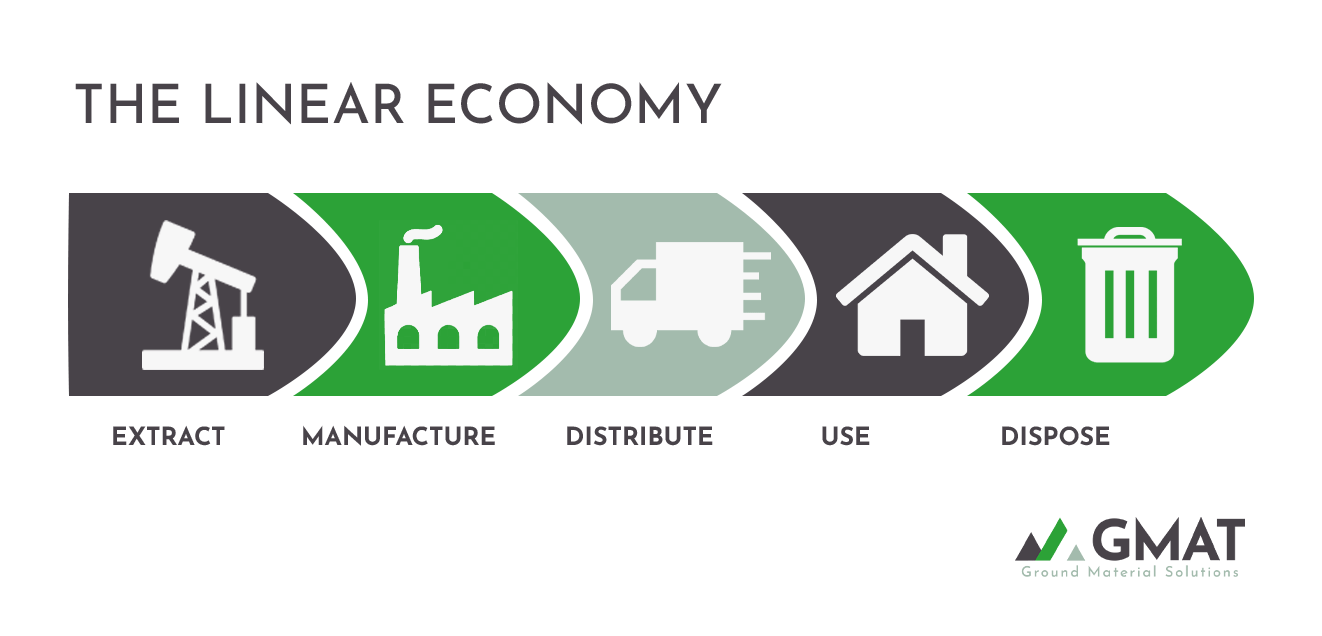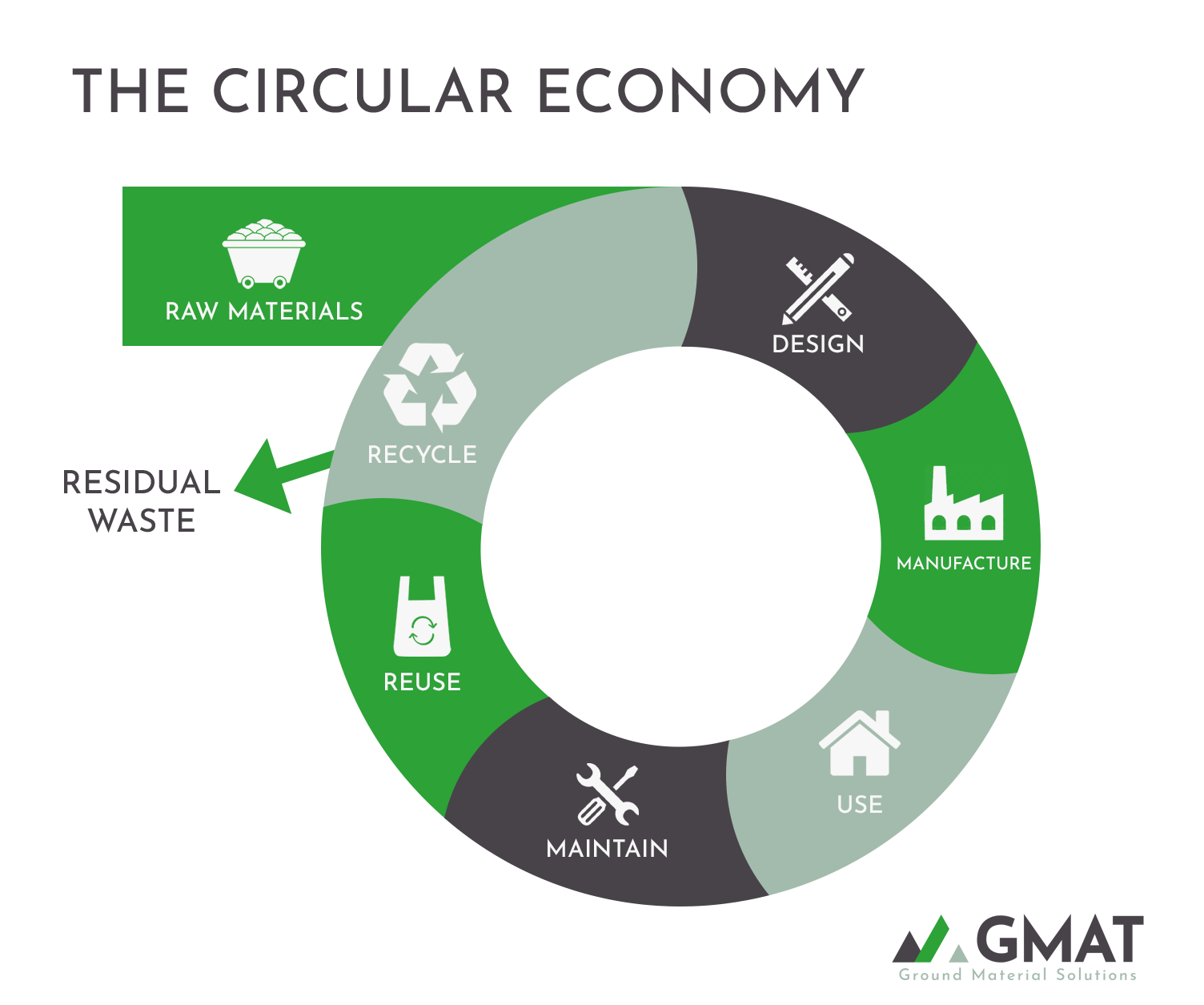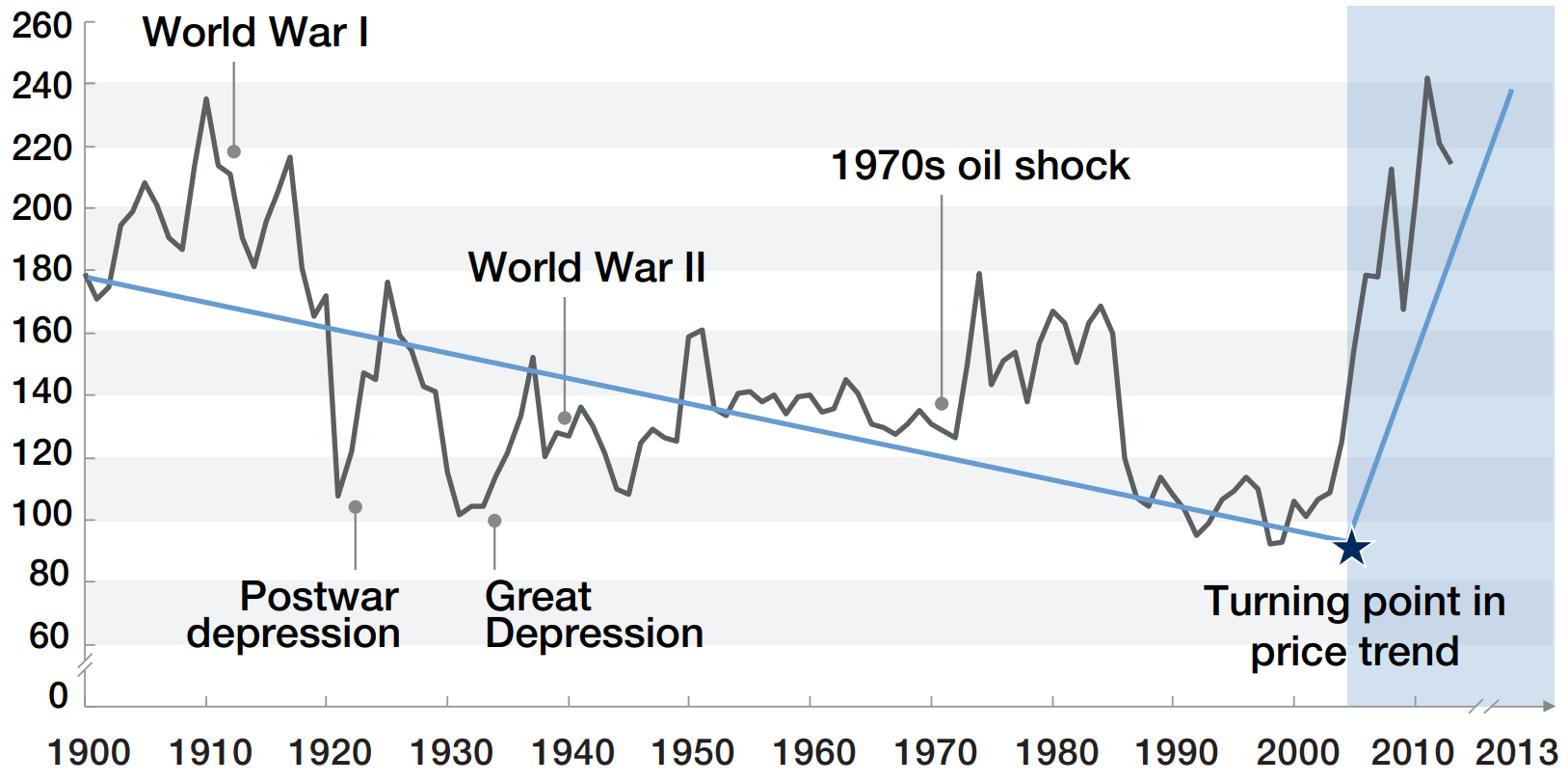A circular economy is a concept aimed at eliminating waste and making continuous usage of the resources available. This can be achieved by reusing or recycling waste soils or materials rather than disposing of them, helping to preserve the raw materials that are available.
To put this into perspective, the current waste economy is based on a linear model which follows the “take-make-dispose” mantra. Raw materials which follow the linear model will be disposed of at the end of the cycle and will no longer be used.
The circular waste economy is designed to restructure this model so materials that would have previously been disposed of will be recycled back into the economy. This will help to reduce the amount of limited raw materials that need to be used.

A diagram that highlights the life cycle of our raw materials until they are final disposed of.

A diagram showcasing the continued cycle of the circular waste model in which materials are reused or recycled back into the economy.
Developing a circular economy will bring a variety of benefits, both environmentally and economically. These benefits could include:
The trend of decreasing costs for raw material commodities has begun to change, with prices now on the rise. This could be seen as a deterrent to businesses using limited resources and gives them an incentive to look at ways of adopting a circular economy model. On the other hand, it could be a decrease in the supply levels due to exhausting the limited resources we have available which has led to the overall price increase.
Either way, this trend of increasing costs will incentivise businesses to make the adoption of a circular waste economy to find sustainable and cheaper ways of operating.

According to Defra, the construction industry generated 62% of total UK waste in 2016 which highlights the importance of developing a circular economy within the industry. Of the 120 million tonnes of waste produced by the construction industry in the UK, soils account for 51 million tonnes (43%). This again highlights the importance of recovering and re-using soils instead of sending them directly to a landfill.
There are several re-uses or recycling options for waste soils that arise from construction developments:
If you require soil recovery solutions for your ‘waste’ material, GMAT can utilise the materials on a variety of restoration or development projects across the North West, Yorkshire, and the Midlands.
Get in touch on 0161 647 7409 or email info@gmat.co.uk
(Sources:
UK Statistics on Waste (publishing.service.gov.uk)
WRAP and the circular economy | WRAP
What are the economic benefits of the circular economy? – Kenniskaarten – het Groene Brein
WEF_ENV_TowardsCircularEconomy_Report_2014.pdf (weforum.org)